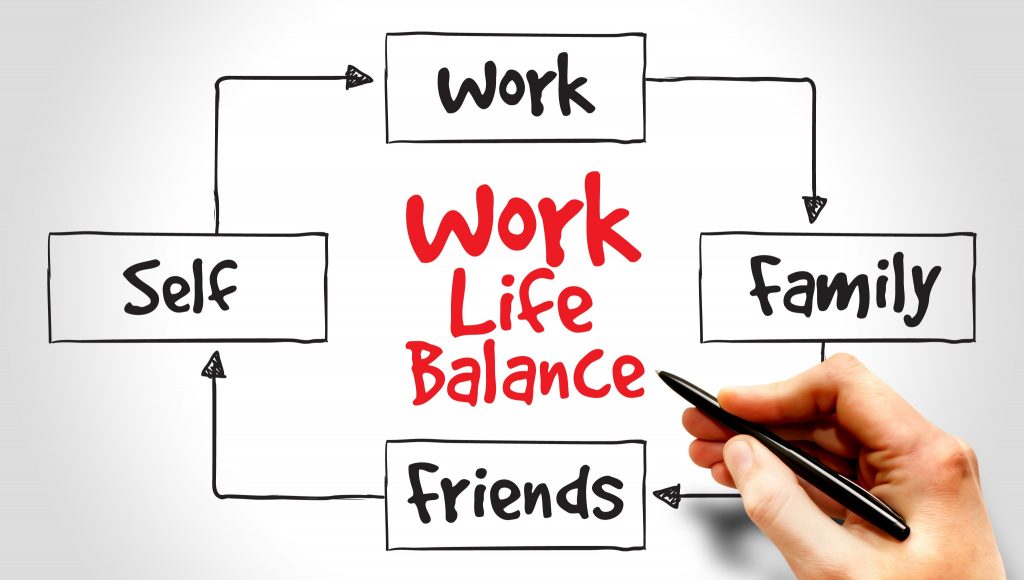Most adults struggle to maintain a healthy work-life balance at some point in their lifetime, but how can you tell if your scales are uneven?

Think about your hobbies. When was the last time you committed time or effort to them? Do you frequently feel like you can’t afford the time or energy to enjoy the rest of the day after work?
You’re not alone. Many of us struggle with this feeling; how did we ever have time for anything other than the mundane??
Time for ourselves seems fleeting with the growing responsibility as we get older and further in our careers. But how do we know if this is a natural realignment with changing values or a sign that something could be wrong?
What is a healthy work-life balance?

A healthy work-life balance is more than giving equal weight to our careers and the fun parts of our personal lives.
It’s about finding the balance between everything that constitutes a healthy and fulfilling lifestyle which includes;
- adequate sleep and rest,
- balanced, nutritional meals,
- regular exercise,
- social interactions,
- good hygiene and personal care,
- a positive and self-supportive attitude.
However, this isn’t likely new or groundbreaking information.
We can all list the things that constitute a healthy lifestyle, but juggling this and work can be challenging.
This is especially true if you struggle with perfectionism, time management, health problems, or a demanding work environment/employer.
However, to have balance, we should give equal importance to the essential aspects of our lives, not investing all our energy in one thing and neglecting other significant parts.
It is also essential to understand that equal importance does not mean equal time.
It’s about dedicating enough time to each essential activity so that we feel we are content and achieving our goals.
A healthy work-life balance is, therefore, highly individual as it will vary from person to person depending on their responsibilities and ideals.
So how do you know if you have one?
What are the red flags you should be aware of

An excellent exercise to gauge your work-life balance is taking a step back and allowing time to pause, reflect and assess your current emotional, physical and mental well-being.
Do you feel content and that you’re leading a fulfilling life that aligns with your values, or do you relate more to the statements below?
1. Often experiencing emotional, physical and mental exhaustion.
2. Finding yourself increasingly negative, irritable and resentful.
3. Frequently feel overwhelmed, trapped, or pulled in different directions.
4. Struggling to or unable to maintain healthy relationships.
If the answer is a resounding yes, it might be time to explore whether you could improve your work-life balance and the quality of your life.
First Step: Realise to prioritise
If you relate strongly to the above statements, reflect further and envision your ideal life.
How does this look? What are you doing less of or more of? What values, experiences, interactions, or activities have you identified that contribute to your fulfilment?
Bare in mind that this is different to fantasising about what you would do if you won the lottery. It’s about reflecting on your life and the changes you can make that are achievable and within your means.
The next step is to analyse the list of things you find fulfilling and identify the ones that are essential and have the most significant value to you.
Once you understand what contributes to your ideal lifestyle, it is easier to prioritise how you spend your free time and the steps you can take to create a daily, monthly and yearly routine that fulfils your goals.
If you want more tips about achieving a healthy work-life balance, keep an eye out for our upcoming blogs discussing this and a deeper dive into why we can get trapped in the cycle of working too many hours.
For those who frequently suffer from burnout and feel like they want to make a change, we offer time and stress management courses that train you to support you in balancing life and work.









